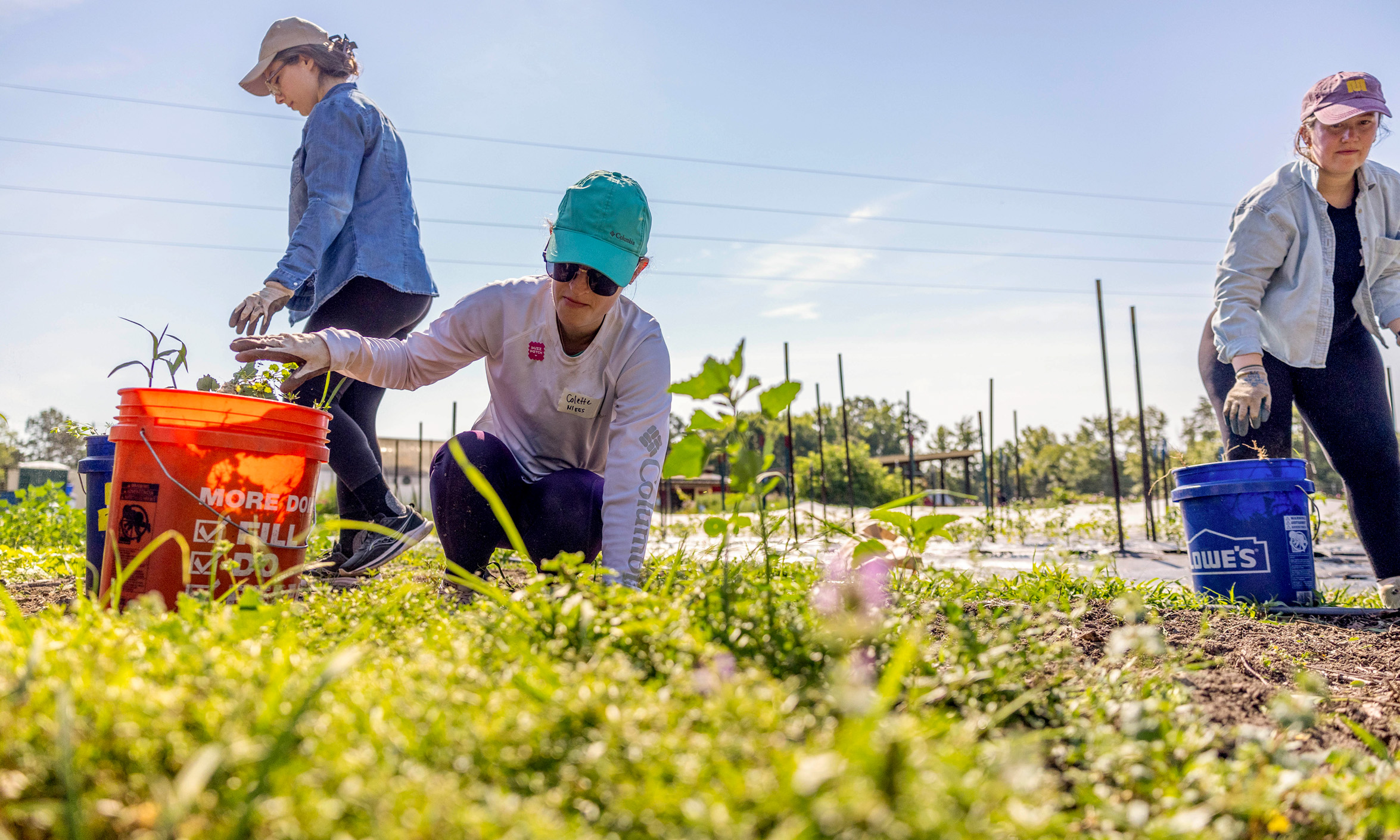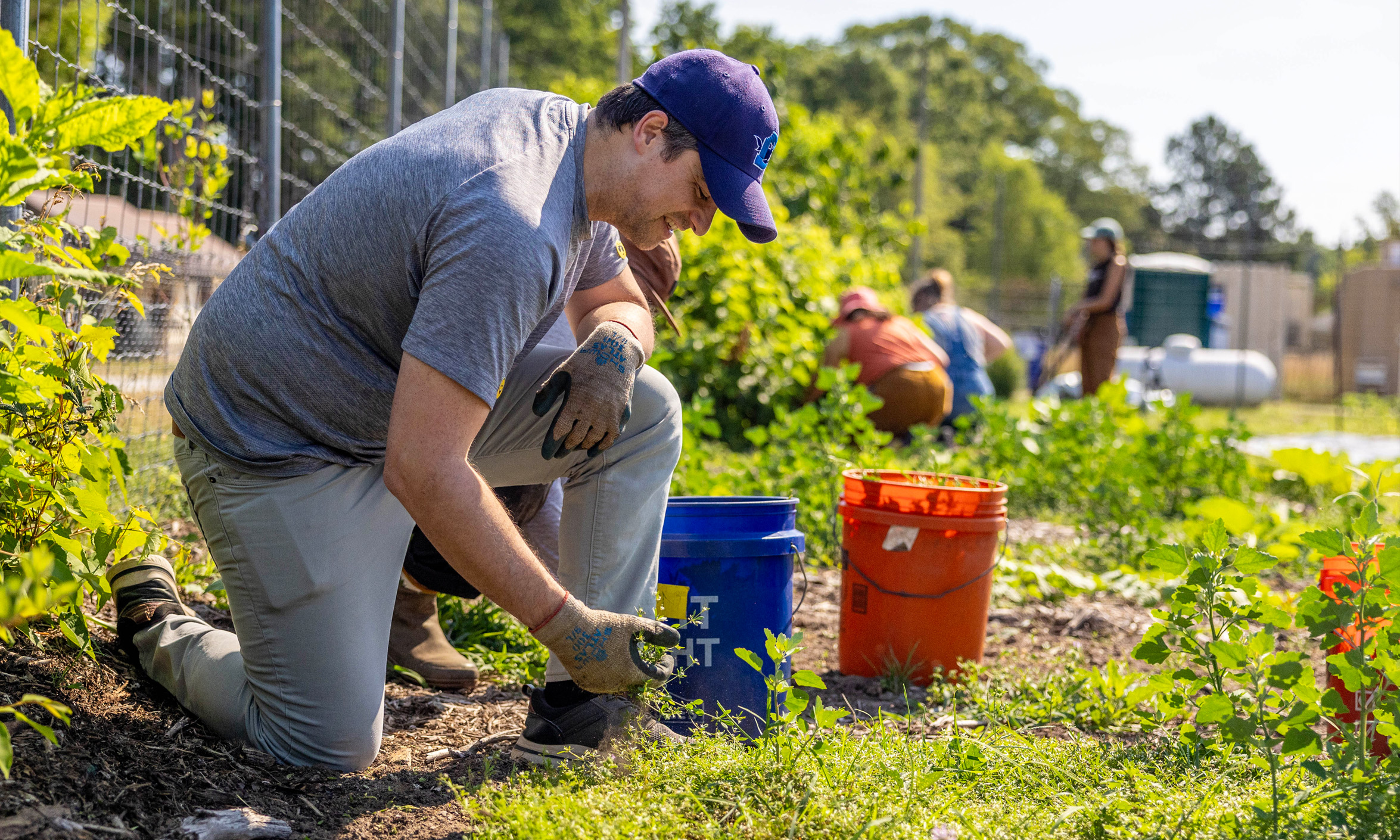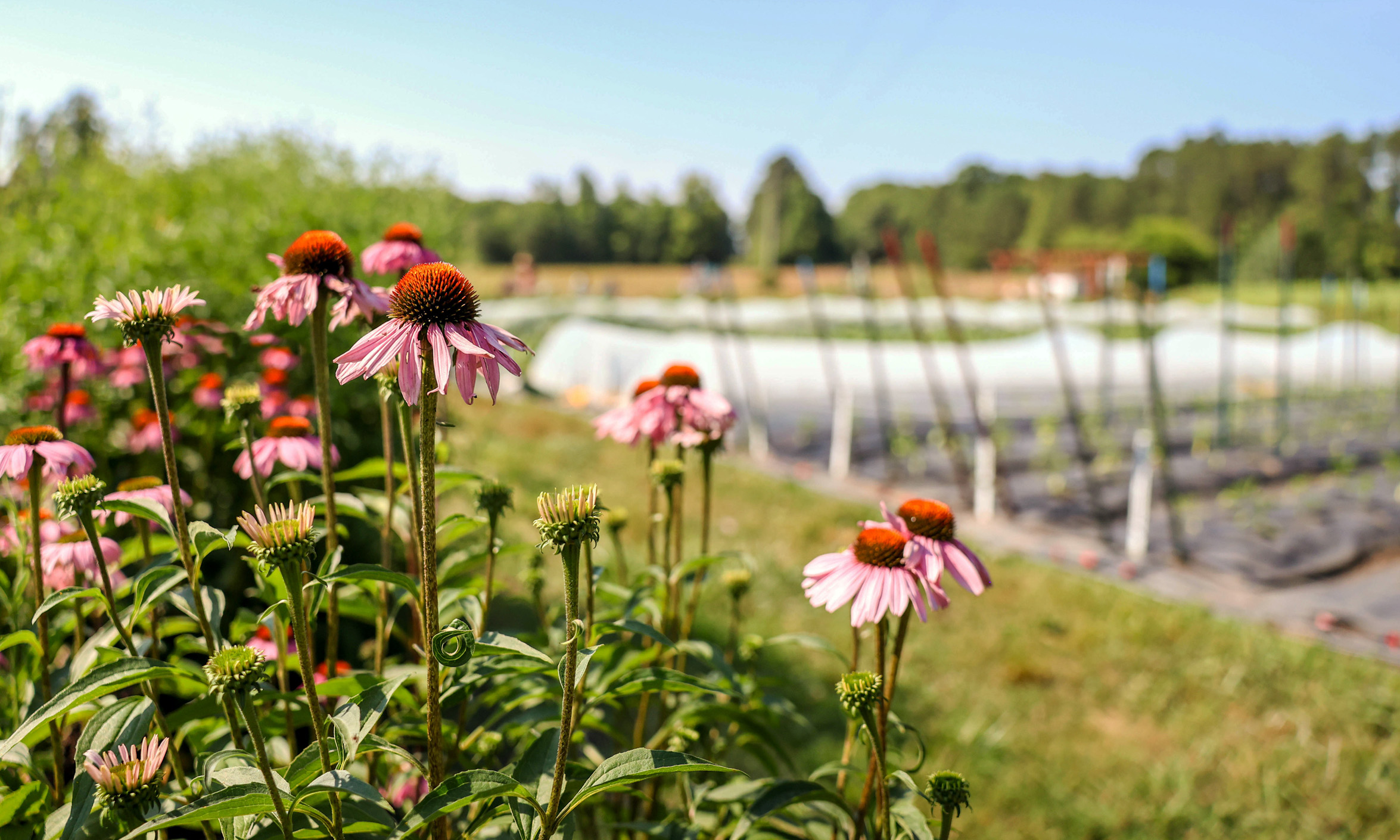A New Season at Duke Campus Farm
Duke Campus Farm explores new ways to serve the Duke and Durham communities

The farm located around six miles away from West Campus on a plot of land in Duke Forest hasn’t changed much since its early years. But this year, the Duke Campus Farm has found new ways to connect with and nourish the community.
For much of its history, the farm gained financial support and created community bonds through its Community Supported Agriculture (CSA) program, which sent around 85 members weekly boxes of fresh produce from the farm. Through the years, the vast majority of the roughly 25,000 pounds of food the farm produced annually went to serving CSA customers.
Earlier this year, as the Duke Campus Farm became part of the newly-formed Office of Climate and Sustainability, farm leaders decided to direct the farm’s produce to programs that combat food insecurity in the community.
The produce from the farm now goes to Root Causes, which connects food-insecure Duke Health patients with fresh produce, and the West End Free Market, the Durham Community Fridges, and the Duke Graduate and Professional Student Government Community Pantry, all of which provide food for those in need in the Durham and Duke communities.
“It’s a huge change for us in terms of how we’re able to work toward our mission,” said Duke Campus Farm Program Director and Assistant Professor of the Practice for the Franklin Humanities Institute Saskia Cornes. “I loved the CSA and I miss the CSA, but I feel like what we’re doing now, in terms of sharing food with neighbors and folks on campus who are hungry, is much more deeply aligned with the values in the program.”

Added Roo Jackson, the Duke Campus Farm’s Community Food Security Fellow, “It feels great to give it all away and not ask for anything in return from the community.”
The change has resulted in different varieties of crops grown in the farm’s soil. Instead of an eclectic array of vegetables meant for adventurous CSA members – such as fennell, celeriac, purple carrots and heirloom pumpkins – the farm now grows larger quantities of vegetables – such as greens, orange carrots, and melons – that are more familiar, and often don’t require cooking.
“Our goals are slightly different,” said Co-Farm Manager Maia Matheny. “We have shifted our production to respond to community food security needs, opting to grow more familiar and accessible kitchen staples in bulk. The reduction in variety has created a more manageable workload for our farm team while prioritizing the volume that we can grow for our community.”
To help maintain avenues of engagement, the farm has an expanded range of programs giving people an opportunity to learn, dance, work and relax at the farm this fall.

Community Workdays at the farm take place every Friday from 1-4 p.m. Volunteers are invited to sign up to work alongside student crew members on simple farm tasks, such as spreading mulch or pulling weeds.
After Community Workdays, from 4-5:30 p.m. on Oct.11 and Nov. 15, the farm will host “Land & Listen” events, which are open to the community and offer opportunities for reflection, relaxation and facilitated poetry discussions.
From 5-7 p.m. on Oct. 23, the farm’s From the Ground Up discussion series resumes with an exploration of importance of heirloom seeds in biodiversity, and ecological and social justice.
And on Nov. 26, the farm will hold a Holiday Market where cool weather crops such as greens, lettuces, root vegetables and more will be available for sale. Learn more about the farm’s event by subscribing to its newsletter.
“I think our biggest barrier is getting people here for the first time,” Curran said. “Because we are out in Duke Forest, it takes more work for people to get here; they don't just stumble upon us. But those who do make it out seem to think it's worth it. Students, staff and faculty have said the farm becomes a respite space where they can breathe a bit easier, connect to the earth and focus their energy on something tangible."
Bring Your Team to the Farm
Groups across Duke can volunteer together at the Duke Campus Farm by scheduling their workdays on weekdays. An ideal size for a group is between 15-30 people. Sessions, which feature some light work, plenty of fun and samples of produce, last between two to four hours. Contact the Duke Campus Farm several weeks in advance for availability. Learn more about Community Workdays, including how to reserve a time for your team, by clicking here.
Check out scenes from a recent Community Workday and learn how valuable an afternoon at the Duke Campus Farm can be.
Send story ideas, shout-outs and photographs through our story idea form or write working@duke.edu.
Follow Working@Duke on X (Twitter), Facebook and Instagram and subscribe on YouTube.